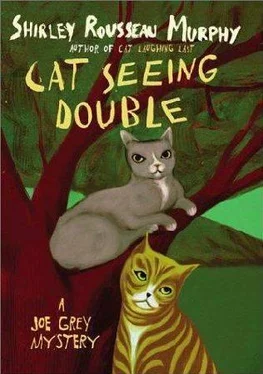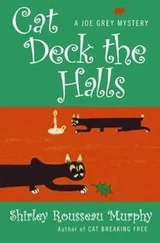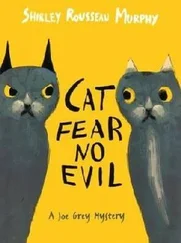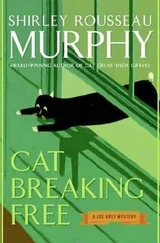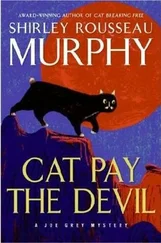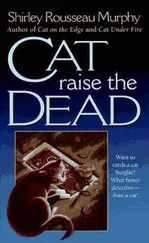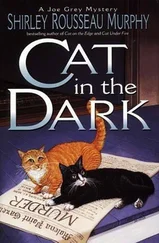She had gotten so good at the job that soon she was filling in for the three foremen. But then the trouble began. Rupert hadn't liked that she was on the job alone with a bunch of men, even though she had saved them money. She had never drawn a salary, either as head designer or as a foreman; everything went back into the firm. She'd never wanted to know how much might go for Rupert's personal pleasures. She guessed Scotty had tried to tell her, but she hadn't wanted to listen.
Now Scotty was working for her, her dear, gruff, philosophical Scotty who loved carpentry and cabinetwork, who had never wanted to move into the management end of the business. Who had joined her immediately in Molena Point, no questions asked, her first carpenter and foreman. Moving in with Dallas, into their family summer cottage, Scotty had been as happy as she to be away from Dannizer Construction.
When she left Rupert there was never any question where she'd go. She'd loved Molena Point since she was a child. The evening she left Rupert she'd hauled out of San Francisco, taking the oldest company pickup loaded with most of her worldly possessions packed nattily in an assortment of liquor boxes from the local market. It was an easy two-hour drive. Arriving in the village, she had picked up a deli sandwich and a couple of cold beers, checked into the only motel with a vacancy, and called Dallas. When she told him what she'd done he couldn't hide his happiness. She had told him she wanted to be by herself for a few days to lick her wounds, and he'd understood. She'd taken a long hot shower and tucked up in bed with her beer and sandwich trying to relax, trying to deal sensibly with her conflicting emotions, seesawing back and forth between victory in finally making the move, and fear of what lay ahead. Thinking one minute that she was crazy to go out on her own, that she couldn't make a success of her own company, and wondering the next instant why she hadn't done this sooner-knowing that if she sued him for half the company, Rupert would fight her, maybe so successfully that he would deplete her personal bank account and leave her destitute. Knowing that she had to find an attorney. And that the lawsuit would be incredibly stressful, but that half the business was rightfully hers and she meant to have her share, that she would need that money to get started.
Wondering if she could make a go of her own business, if she had it in her to do that, she'd sat in bed trying to calm her nerves, so stressed she hadn't even called her sister, though Hanni would have turned out the guest room, popped a bottle of champagne to toast her wise decision and her coming success.
Hanni had moved down to the village some months before Dallas made his own job change, and Ryan could have stayed with either of them; but Hanni was so positive and sure of herself and would tell her exactly what to do, would cross all the t's and dot the i's to make life easier for her. It would have been hard to explain to Hanni the illogical pangs that were mixed with her wild sense of euphoria at being free-almost free.
Alone in her motel room she'd gone to sleep hugging her pillow, congratulating herself that Rupert was out of her life, and scared silly of what lay ahead.
Now, standing at the rail watching Juana Davis come around the side of the garage and look up, she set her cup on the rail and went down to answer the detective's questions.
In the early dawn, Jolly's alley was softly lit by its decorative lights and by the gentle glow from the leaded windows and stained-glass doors of its little back-street shops. The charming, brick paved lane, lined with potted trees and tubs of flowers, was not only a favorite tourist walk, but was the chosen gathering place for the village cats-for all the nonspeaking felines who knew nothing of Joe and Dulcie and Kit's human speech nor, in most cases, would have been impressed. If the occasional cat looked at them with fear or with wonder, these moments were few and fleeting.
Entering at the eastern end of the block-long retreat, they found an old, orange-tabby matron beneath the jasmine vine, licking clean the big paper plate that George Jolly had set out. Joe knew the matron well, they had once been more than friendly but that was long before he met Dulcie. Probably the old girl didn't remember those hasty trysts, and certainly Joe didn't care to. He was a different tomcat now, totally faithful to his true love-though he still liked to look. No harm in a glance now and then.
The matron, finishing her breakfast, lay down on the bricks precisely where the first thin rays of morning sun would have gleamed, if the dawn sky had not been low with fog. Dulcie glanced at her absently, her mind on San Francisco and on Charlie and Max Harper awakening this morning in that beautiful city.
"Breakfast at the St. Francis," she said softly, "looking down on the city." Such a journey, to the city by the bay, had long been Dulcie's dream. But at Dulcie's words, the orange cat widened her eyes then turned her face away with disgust, tucking her nose under her tail. Such un-catlike behavior was both alarming and patently beneath her notice. Squeezing her eyes shut she refused to move away from them, though the skin down her back rippled with wary annoyance. Down at the end of the lane a homeless man ambled by, then two young lean women jogged past, their long hair pulled through the backs of their caps.
"Breakfast in bed," Dulcie whispered, still dreaming, "then to wander that elegant city, to ride the ferries to Sausalito and to Oakland, to visit the museums and galleries."
Joe looked at her and sighed. Sometimes it was hard to understand the shape and depth of Dulcie's longings.
Though Joe was just as different from other cats as was Dulcie, he didn't suffer from her exotic hungers and impossible yearnings. He didn't steal his neighbor's cashmere sweaters and silk teddies, for one thing, and haul them home to roll on like some four-pawed Brigitte Bardot. He didn't imagine wandering through Saks, or Lord and Taylor. He had no desire to dine at the finest restaurants with views of San Francisco Bay. Joe Grey liked his life just as it was-as long as Dulcie was a part of it.
The two cats stirred suddenly. Their ears pricked. Their bodies went rigid as sirens screamed from the station four blocks away.
Swarming up the jasmine vine to the roof where the kit sat welcoming the dawn, they watched two whirling red lights racing north among the cottages where some hours earlier they thought they'd heard the two shots fired-and like any pair of human ambulance chasers, Joe and Dulcie took off across the roofs, intent on police business.
The kit trailed along halfheartedly, her mind on other matters.
Racing across the rooftops and crossing above two streets on spreading oak branches, Joe and Dulcie scrambled down a trellis and galloped along the damp morning sidewalks and through fog-wet gardens, eagerly following the sirens. A screaming rescue vehicle passed them. And somewhere in their mad race the kit vanished. Glancing around, Joe and Dulcie fled on; there was no keeping track of the kit. Up the next hill, the rescue vehicle and squad cars were parked in the drive and at the curb of Ryan Flannery's apartment. The cats paused, slipping ahead warily, rigid with their sudden apprehension.
Though the dawn was now bright, a light burned around the edges of Ryan's closed garage door. The voices that issued from within were low and muffled. The cats could hear Ryan, her voice taunt and upset, and could hear Detective Davis and Officer Bonner speaking solemnly. Davis, a longtime department veteran, was solid in her ways, businesslike and reassuring. The cats were still evaluating young Bonner. As they trotted up to the big, closed door and pressed against it to listen, the coroner's green sedan pulled into the drive. Filled with curiosity, the cats slipped into the shadows beneath the stairs.
Читать дальше
